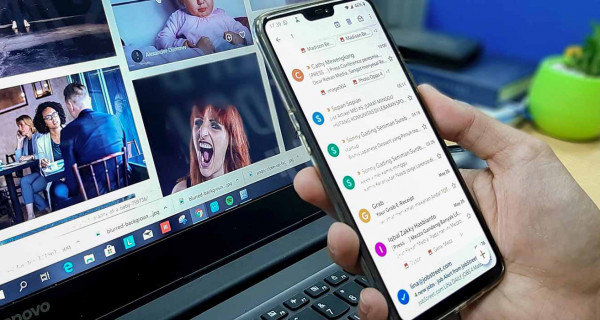Waiting for a website to load is very frustrating for users especially when there are numerous other options. We all have been in situations where we are trying to open a website and it keeps on loading and then we have to end up closing the page. The blog covers website Page speed, its importance and how to improve it in depth.
What Is Page Speed?
Page speed means how fast a website is able to load its page with its full information without taking much time. Websites that work slowly and take a long time to show up on a web browser can make people leave. On the other hand, websites loading speed faster usually get more visitors and are better at encouraging visitors to do the things the website wants them to do, like buying something or signing up. Page load speed really matters for your website's success as it has a direct impact on user experience.
Why is page speed important?
Better User Experience
When a website page is loading quickly then the users are able to see the content they want without having to wait. This makes a much better user experience, as all users are able to quickly find what they want. But when a website's page load speed is slow, then the user may leave the website by being frustrated.
Keeps Visitors Interested
Imagine that your website has outstanding content that the users may like, but if your site speed is slow, it might discourage them. When you have a fast-loading website it keeps the users engaged and they are able to see the exciting content and even offer and participate in it. It keeps the visitors interested towards your page.
Low Bounce Rate
You may be aware that when a website's page speed is slow, users tend to leave the page. According to the experts from How To Write CDR, when a page loads quickly, they are more likely to stay longer, which can greatly benefit your website or business operations. This is why having a fast-loading page is important because the faster the page, the longer visitors will stay
Better Rankings in Search Engines
Search engine's algorithms take page speed as one of the factors in ranking. For the sake of website traffic and getting new users, page speed plays a very crucial role. Also when your page is fast people will stay for a longer time instead of going to another page to find what they were looking for.
Higher Conversion Rates
When your website loads fast and works smoothly people are more likely to do what you want them to do like buying your product, signing up for your newsletter or filling out a form. Slow sites might make people give up before they finish these actions.
Happy Customers, More Business
When your visitors have a great experience on your website because it's fast page speed and easy to use then they're more likely to come back. Happy visitors can turn into loyal customers which is very important for your website to operate and that is why website loading speed matters a lot.
Key Factors Impacting Website Page Speed
Page Weight
Different elements like large JavaScript files, video content, heavy CSS files, and high-definition images have an impact on your site speed so you must consider these things properly.
As new web stuff gets better and websites become more advanced it gets much harder to make the website load fast and also that they don't use too much space and data. For example, some websites now have just one page that does a lot of things using many pieces of code or they have ads that pop up or moving pictures in the background. These things make websites look very interesting but they can also slow them down.
Network Conditions
The quality of the internet provider and the local networking equipment significantly impacts your site speed and overall network connectivity. Page speed on mobile devices tends to be low because of the network connections along with the processing power of the mobile.
Even though developers can't do much about these things, they have ways to make websites load faster even if the internet is slow. They can do things like making files smaller and using special networks to keep the website closer to people.
Hosting Location
How far the content on a website has to reach can impact web page speed and result in slower loading times. For example, if the main parts of a website are kept in one place in Ohio but the pictures are kept far away in Florida then someone on the west side of the country might have to wait more because the website staff has to travel a really long distance to reach them.
Complexity and Technological Advances
Developers now have the ability to incorporate greater functionality into webpages, leading to more complex websites. Single-page applications with multiple JavaScript functions, pages with interactive elements like pop-up ads, and backgrounds with animations all contribute to increased page complexity. These advancements, while enhancing user experiences, can also slow down loading times if not optimised properly.
In essence, factors such as page weight, network conditions, hosting location, and the complexity of website elements collectively influence how swiftly a website loads. Web developers need to carefully consider and address these factors to ensure an optimal browsing experience for users.
How to Make Your Web Page Speed Faster
Optimise Images
You can make your website page speed by employing smaller image sizes and formats. There are a lot of tools available to reduce the sizes of the images too without impacting the quality of images.
Minimise Code
You can clean up the codes and spaces in your different files like HTML, CSS and JavaScript to make your website load faster. You should make sure that you do this time and again so that your slow site will work smoothly.
Browser Caching
When you enable browser caching it is like telling your computer to remember parts of a website it has seen before. So, when someone comes back to your site, their computer doesn't need to fetch everything again from the beginning. Instead, it uses the stuff it already has to show the page more quickly. This makes the website load faster for people who have been there before.
Reduce Redirects
You can also reduce the redirects from your website to get visitors to your page speed faster. This saves both the websites and the users time.
Compress Files
Larger files make your website load very smoothly and sometimes they also lead to your website not opening at all after a lot of time of loading too. The size of an uncompressed file is always more than a compressed one for obvious reasons.
Minimise Plugin
Don't keep a lot of plugins on your website just because they get the work done properly. Using multiple plugins means dealing with their styling and JS files which can be challenging. To get the best performance, you need to use only essential plugins and ensure they are always updated. Even with just one plugin, you can make your website speed and performance very successful in comparison to multiple plugins.
Optimise Fonts
When you engage in website optimization, you ensure that the text on your website looks good without making the website speed slow. You can use fonts that are known to work well on the web or get fonts from places you can trust. This way your website will load quickly and even people won't have to wait too long to see the words on your page. Use web-safe fonts or load fonts from reliable sources to avoid slowing down your site.
Conclusion
Overall, Having a good page speed website is crucial for its success, including websites like AMITKK, which provides informative blogs on tech and marketing. You need to keep in mind that having good and interesting content or advertising is not enough for the success of your business and website. The time speed that it takes for your page to load also determines your success and your customers.
FAQ
Why does how fast my website loads matter?
When a website page loads quickly, it gives a better user experience as they don't have to wait. But if it's slow, they might leave and go to another site. Fast-loading websites keep visitors interested and make them explore your websites and its pages more.
How does slow loading affect my website?
Slow-loading websites can make visitors frustrated and leave. They might not see all the cool stuff you have on your site. Also, search engines like Google prefer fast websites, so a slow site might not show up as high in search results.
How can I improve my website page speed?
You can do a few things. Make sure your images aren't too big and use special techniques to make your code smaller. You can also use reliable fonts and let browsers remember parts of your site so they don't have to load everything again each time.
How do web-safe fonts improve page speed?
Web-safe fonts are fonts that work well on the internet and won't slow down your site. Using these fonts helps your website load quickly and ensures that visitors can read your text without waiting too long.
What is the impact of browser caching on page load?
Browser caching is like a memory trick for computers. It downloads and saves files and images in the browser in the form of a cache so that when people come back, their computers don't need to load everything from scratch. Returning visitors experience a faster page site load giving a better user experience.
















